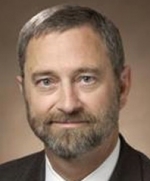Dr. James Kelly talks about how at one point in history a huge number of people in the military were dismissed for "administrative reasons," but no one investigated what was happening behind the scenes with those soldiers. For many, the cause of the changes were "invisible wounds." The Marcus Institute reaches out to those who were released from the military on "other than honorable discharges" and evaluates them to see if they have an invisible wound. If so, the Institute provides comprehensive care for the physical, emotional, and cognitive changes that can accompany trauma to the head using a combination of traditional and complementary treatments.
Learn more about some of the treatments available for those recovering from brain injury and PTSD using our Treatment Hub.
Watch more videos from Dr. James Kelly.
One of the things that occurred to us in building The Marcus Institute was that there are ... there had been a span of time huge numbers of individuals dismissed from the military service for "administrative reasons," meaning they weren't able to function in a way that was useful to the military. That was often all it took to get dismissed from the military without there being any effort made to try to figure out what the underlying reason was. Not uncommonly, the under underlying reason was an "invisible wound." And so what we want to do is to seek those individuals out that have what are called "other than honorable discharge." That's literally the category. There's also "dishonorable discharge," which means they got themselves in some trouble. And those individuals and the "other than honorable" are welcomed to come to our location and given the benefit of the doubt to try to figure out what's the ... what's the real underlying cause here and if, in fact, it has to do with an "invisible wound." Then we ... we take them in and do our best to help them. They're every bit as deserving as everybody else that ... that made it through to "honorable discharge" and it's not a small number of people. Congressman Coffman, here and in the district where our Marcus Institute lives, has written that he estimates that since 9/11 at least a hundred thousand military are in that category. We went back then and asked at the Senate Veterans Affairs Committee level, their estimate across the lifespan of all veterans now. It's ... it's five hundred thousand. Not 100. That half-a-million that they estimate are, in that, "other than honorable" or other categories of that aren't "honorable discharge" that have these very problems that need to be addressed. And we think they deserve our care. If you're "dishonorably discharged," yes, that's a big problem and oftentimes there is some other legal, even criminal, situation that faces those individuals. "Other than honorable," the "administrative case," actually is also dismissal without any kind of access to the VA or TRICARE and so forth. They're just without benefits so those individuals are really, you know, just adrift in in the system. We pay for that. The gift that actually covers my salary and my team is in order to have us available to take care of those people at no cost. And so that's why we're looking to help them, in particular and give them the benefit of the doubt. Now, having said that, we don't pretend that in a civilian setting like ours we have any particular influence on turning that benefits package around and their whole VA relationship, but they're welcome to use what we generate for their own argument in that direction. And so we know fully well that ... that will be used by some individuals to help turn that around for themselves so that they can improve their own benefit package, so to speak. This video was produced by BrainLine thanks to generous support from the Infinite Hero Foundation.
This video was produced by BrainLine thanks to generous support from the Infinite Hero Foundation.
About the author: James Kelly, MA, MD, FAAN
James Kelly, MA, MD, FAAN, a neurologist, is one of America’s top experts on treating concussions. He currently serves as Executive Director of the Marcus Institute for Brain Health.

